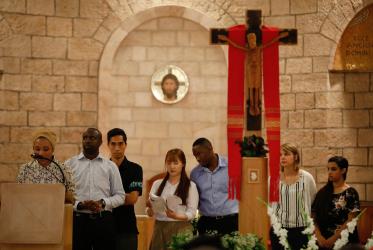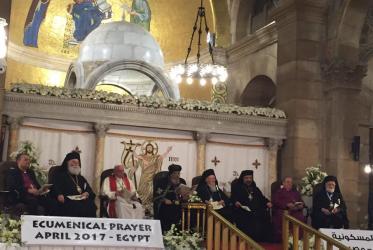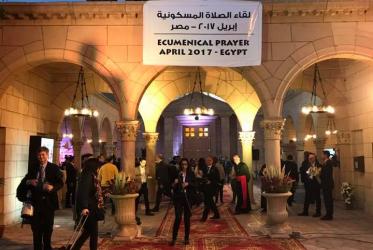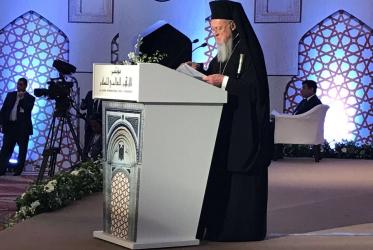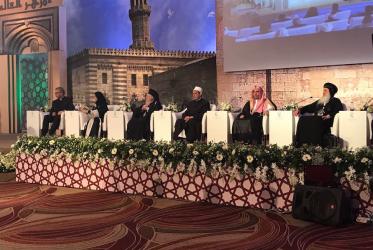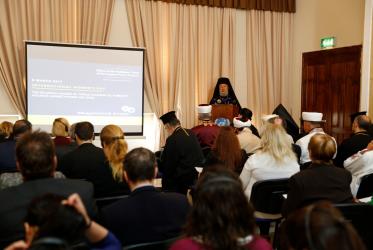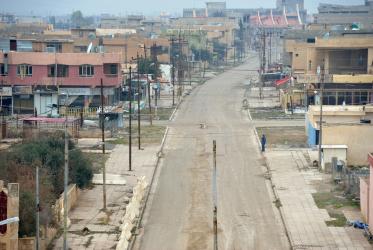Displaying 101 - 120 of 178
Women in development create space for hope in Egypt
15 June 2017
Christian and Muslim promote spiritual solidarity
14 June 2017
‘Love is stronger than hate’
02 May 2017
Historic ecumenical prayer in Egypt for peace and unity
30 April 2017
In Lebanon, refugees face hardship - but find hope
16 March 2017
WCC gravely concerned over Israel’s travel ban
09 March 2017
“There are no strangers here” – Saint Irenaeus a key to unity?
19 December 2016
‘No Christmas bells in Mosul’ for a third year, says Assyrian priest
14 December 2016

